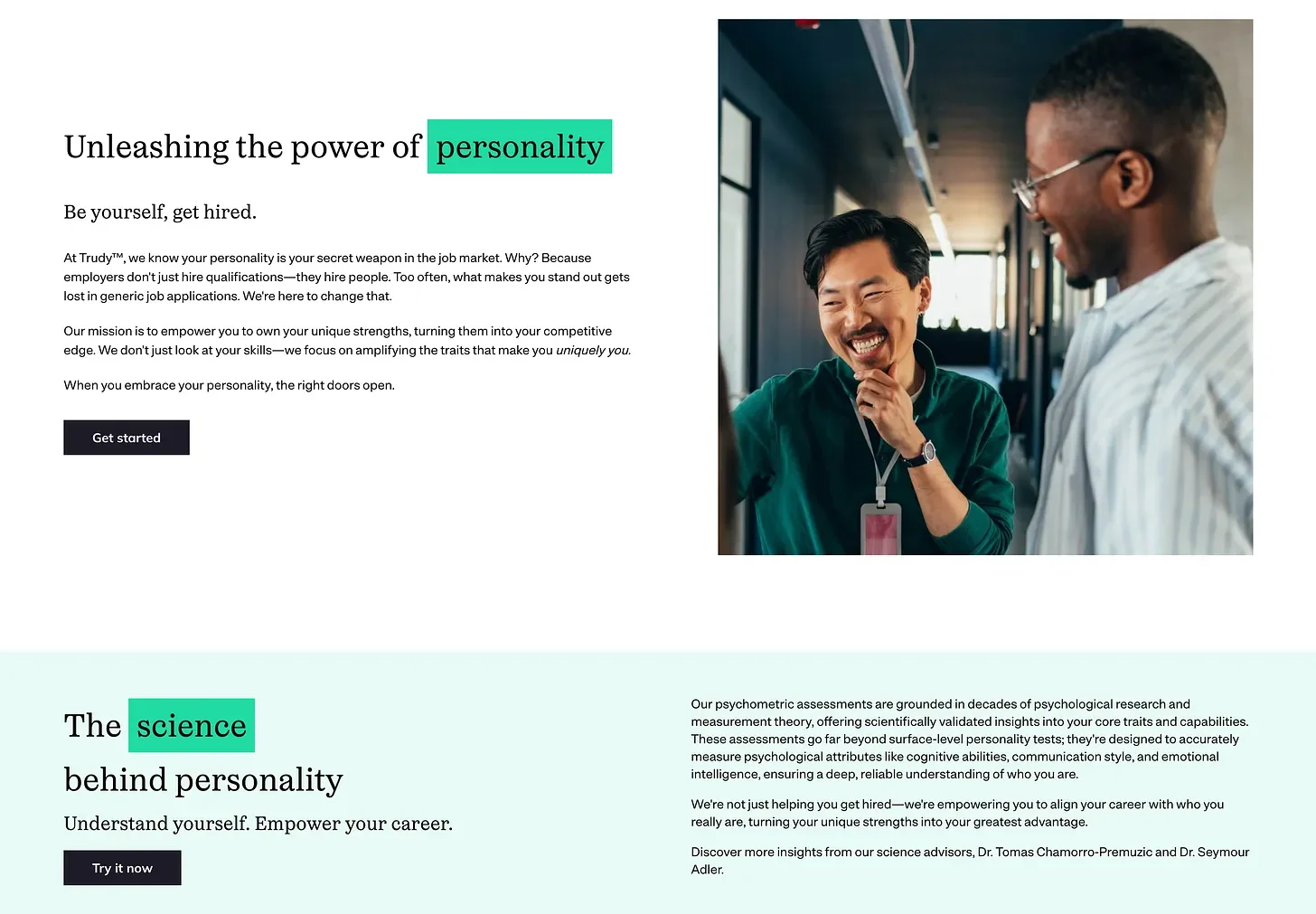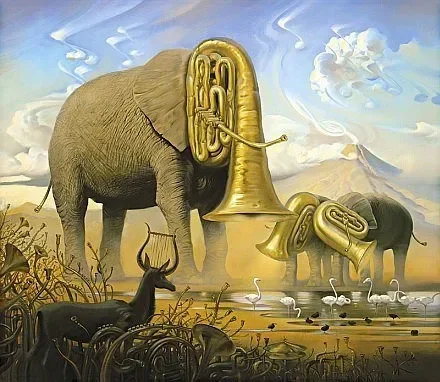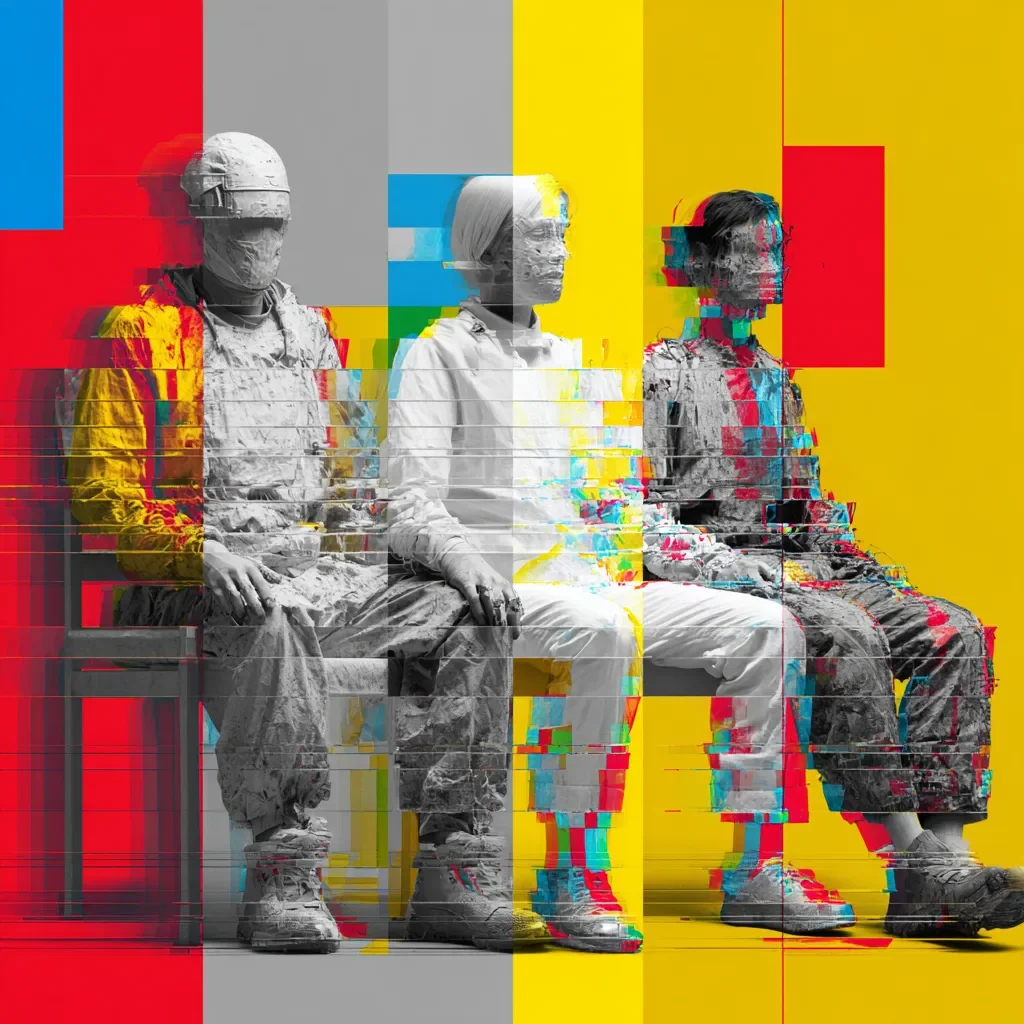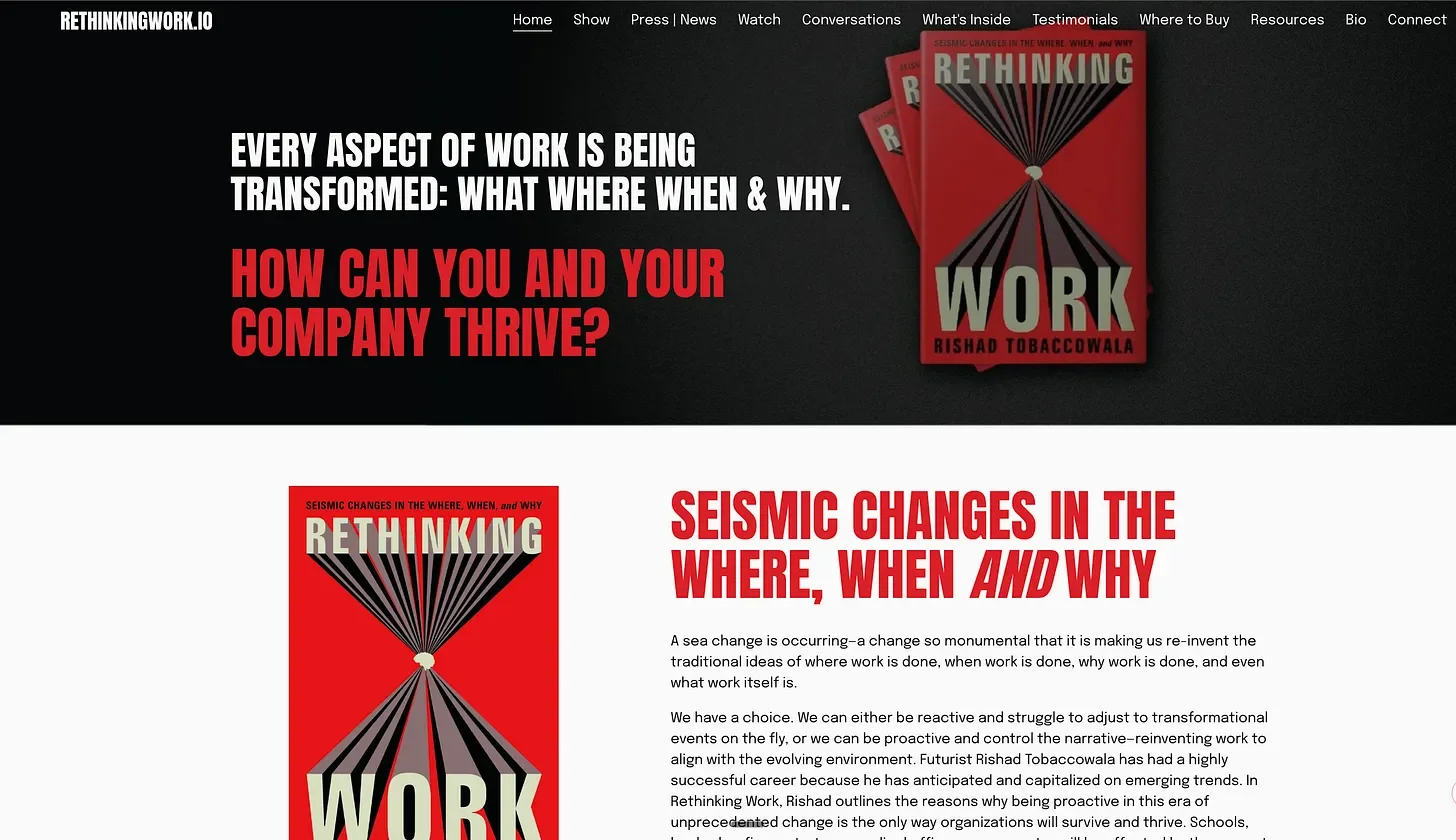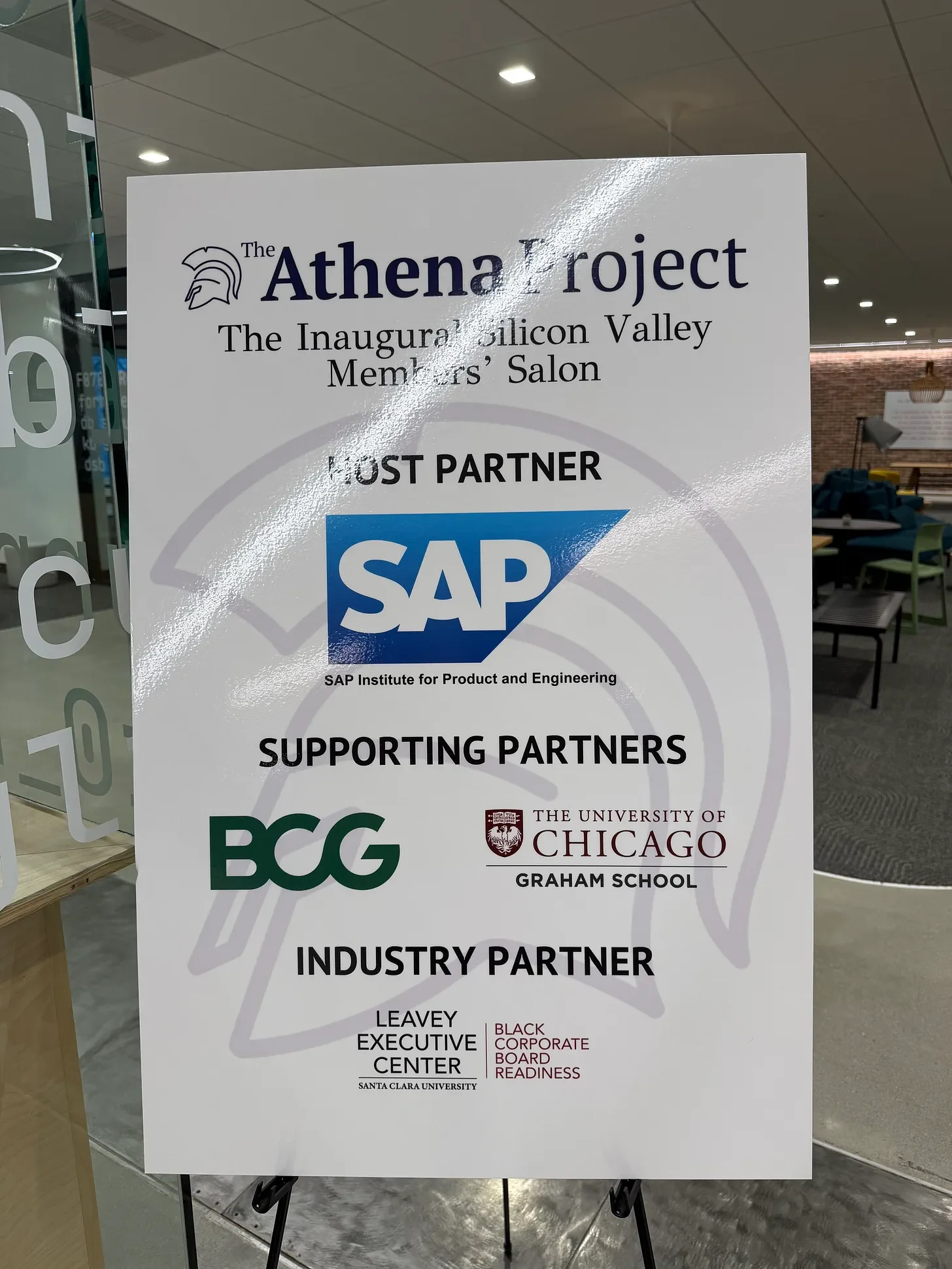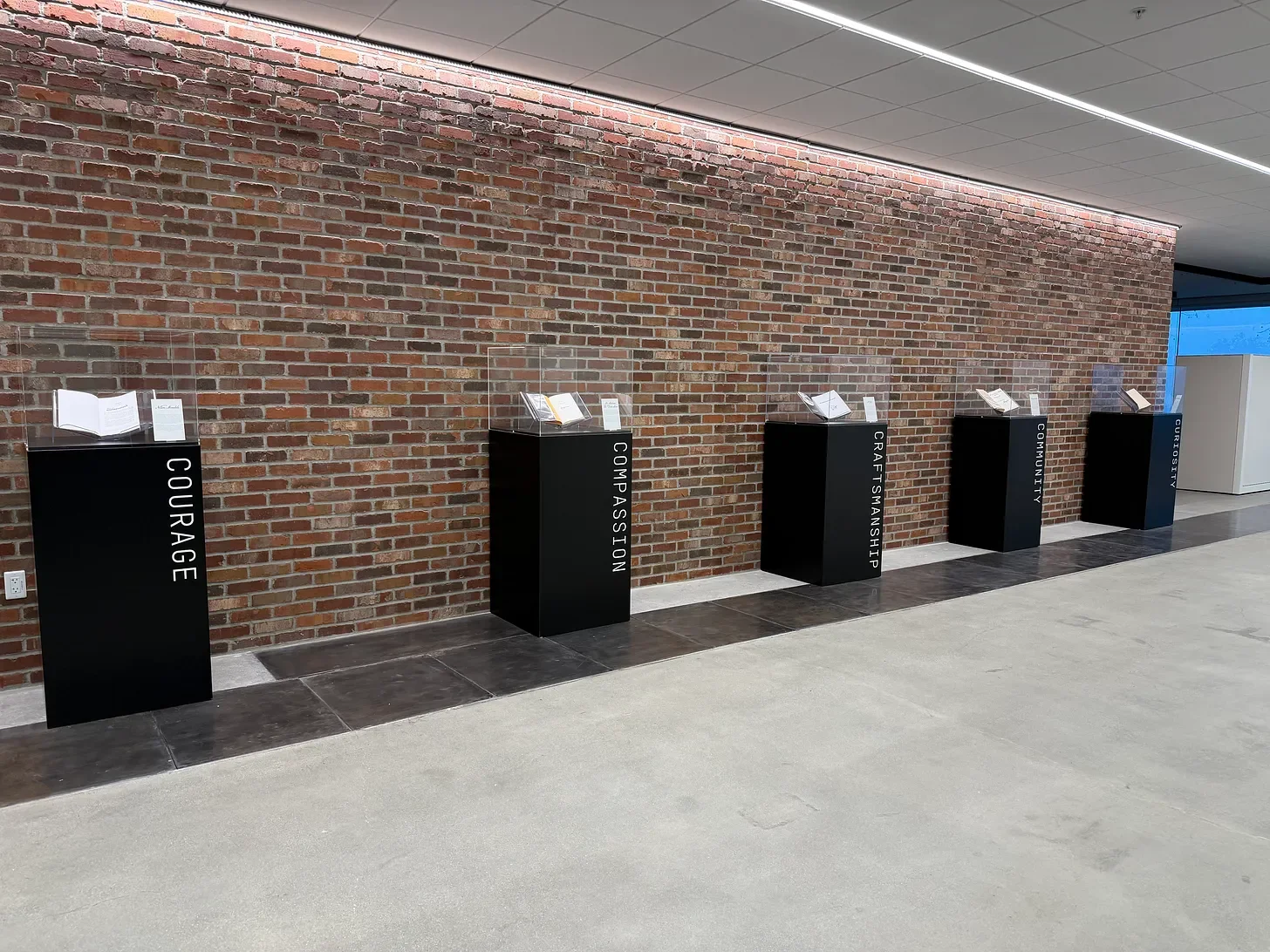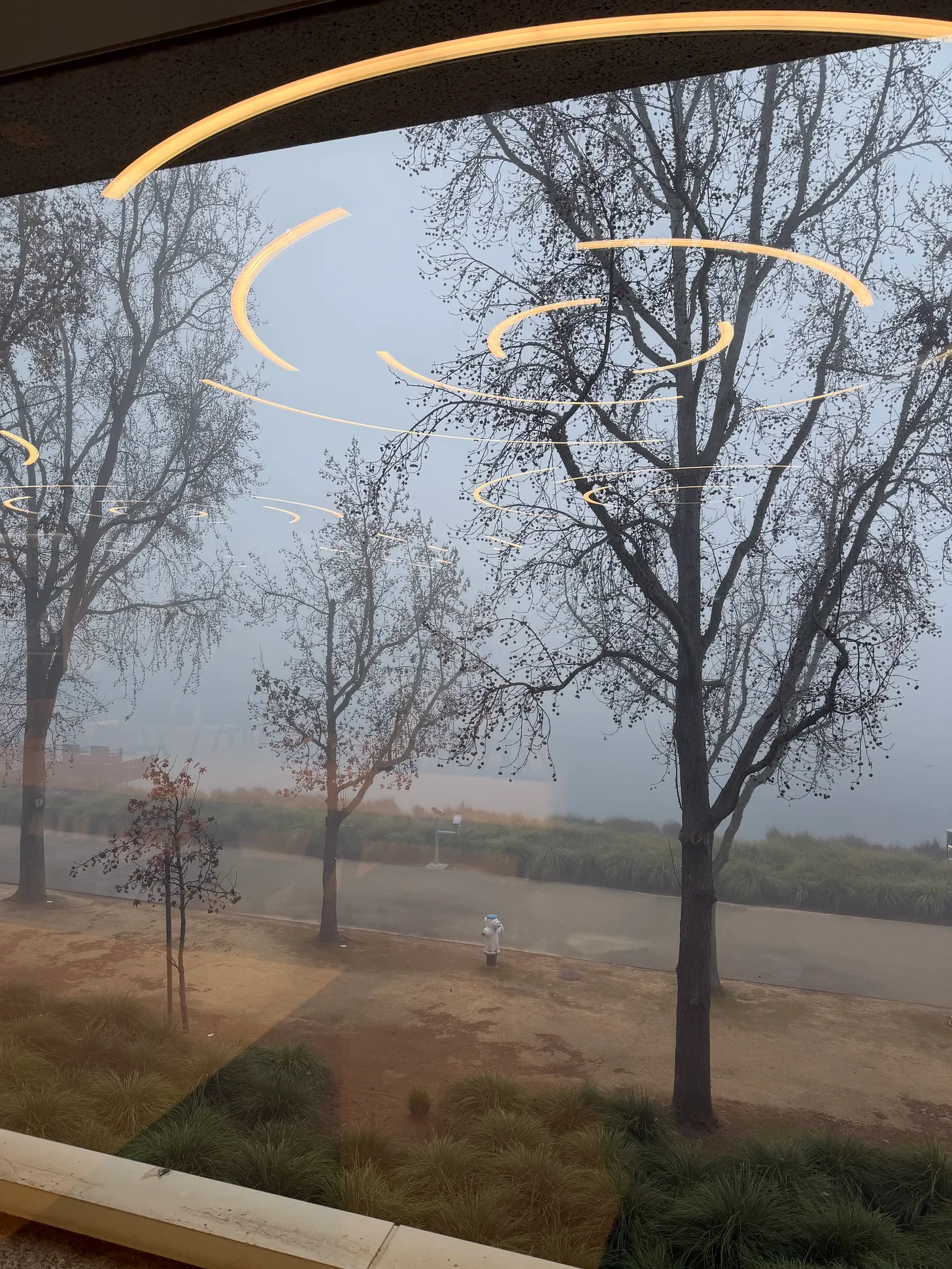Finding Career Fit For An AI Age.
Image by Scentofmoment via Midjourney
Many months ago I was given early access to the beta version of a new service which promised to help an individual better understand themselves and find ways navigate their career in ways that were aligned with and fit their personality.
Trying the beta version I was surprised at not only how easy and fast it was to use but also how accurate and revealing it was.
Today the service called myTrudy is available to everybody for free to try at myTrudy.Com
It will provide a person with their PQ which is personality quotient in less than five minutes.
It became clear to me that myTrudy’s Personality Quotient approach would be important in the AI Age where what we know and what we have done will become less important than who we are and what we can become!
This week on The Rethinking Work Show Avi Steinlauf the CEO and Co-founder of myTrudy and Tomas Chamorro-Premuzic another of the Co-founders share the science, the thinking, and the ways their service can augment an individual in finding fit while also helping companies find the right talent that fits their firm.
Avi most recently was the CEO of Edmunds.com. Tomas is an international authority in people analytics, talent management, leadership development, and the Human-AI interface. He is also Chief Science Officer at Russell Reynolds Associates. The other two founders of MyTrudy are Peter Steinlauf and Dr Seymour Adler. Peter Steinlauf acquired Edmunds Publications in 1980 and launched Edmunds.Com in 1995 which grew to be the pre-eminent automobile site before being sold to CarMax. Dr. Seymour Adler has been awarded the Distinguished Professional Contribution Award from the Society of Industrial and Organizational Psychology in recognition of his career-long and global impact on talent assessment and development practice.
Encourage listening to or watching the entire conversation with Avi and Tomas but here are some key insights and provocations:
1. Who we are is an under-rated determiner of future career success: Our success is t based not just on our IQ or EQ or TQ(Technology Quotient) but also on our own personality or PQ ( Personality Quotient). Today in an AI age, IQ and TQ are often being outpaced by machine intelligence making EQ and PQ more important.
2. The new PQ test identifies five key traits and reveals three keys to career success: The five traits are agreeableness, conscientiousness, how extroverted one is, how open one is and emotional stability. Three keys to future career success are SDL where S is smart and ability to learn, D is drive or ability to work hard and L is likability or ability to get along with others.
3. Reinvention will be the key to career success: As we work with Alien Intelligence (AI) and Replicants (Agents) our ability to reinvent what we work on , how we work and most important how we learn and unlearn will be key. As will our ability to persist, adapt and work alongside and collaborate with messy humans. To reinvent ourselves for the future of work we will need to understand ourselves.
4. Beyond the Resume and LinkedIn: One’s resume and LinkedIn profile while important are backward looking in a world which moves forward and companies focus on hiring for future potential. A LinkedIn profile is the road we have travelled while our personality and PQ serves as a GPS to help us navigate the next turn in our career journey.
5. PQ will be key for for a world of work versus a world of jobs: We may have passed peak full time jobs in many countries but not peak work opportunities. As companies in an AI age focus on getting work done versus filling jobs, and many individuals through choice or circumstances pursue portfolio careers, a key to success will be fit. What work fits us. How can companies fit work to the skill and the personality of the candidate? How can individuals look for opportunities that fit us versus searching for jobs?
6. Persistent Career Blueprint we can all own: While the world changes fast our personalities do not. But how should we architect, sculpt and hone ourselves to remain relevant ? One way is to sprout wings around the roots of our true selves which is our personality. PQ is part of the persistent career blueprint we can all own.
Listen or watch the entire episode. It will be 40 minutes that will make you think differently about your future career, how to manage your team and how to hire for your firm. And you can access MyTrudy and the free Personality Quotient test here: https://mytrudy.com/
YouTube:
Apple Podcast:
Spotify:
And in the juxtapositions may lie the meaning.
Image: Midjourney to the prompt “juxtapositions”
1. Digital silicon-based data driven solutions. Analog carbon-based emotional challenges.
A machine computes. A human dreams.
The elegance of code is often thwarted by the messiness of people.
Algorithms find co-relations between present and historical data sets. Adventuresome people leave the beaten path and innovate by forging new connections between things that were unconnected before.
Software is written but T.E. Lawrence (Lawrence of Arabia) emphasized “nothing is written” in human progress.
It is imagined.
Silicon Valley believed AI could monitor and clean up the weaponized mess of social media. Lots of computing power and tens of thousands of people later the situation continues to sizzle.
People surprise and are illogical.
Math may have no meaning or it may be the closest to truth.
Meaning often has no math and for most people the real world is not enough.
Artist: Giorgio de Chirico
2. Diversity of people. The diversity of voices.
Diversity is critical.
Diversity ensures innovation as differences of perspectives, voices, and expertise find ways to connect, intersect, compete and intertwine.
Life, nature and biology are driven by diversity.
The drive to diversity whether it be gender, ethnicity, sexual preference or background is important because it is fair, just and supports ideas, value, freedom and career growth.
Even more critical is that the diverse voices are heard, and diversity is not just diversity of faces or quotas to meet benchmarks.
Artist: Vladimir Kush
3. Why we join. Why we stay.
We seek jobs and careers that will afford us money, power and fame.
And we measure our wealth, our span of control and our influence.
But we stay for connections, purpose and personal growth.
Do we feel connected to the people we work with, the purpose and values of the place we spend our lives, do we feel we belong and our voices are heard.
Most importantly do we feel we are growing as people with our skill and expertise?
We came for the numbers that we could measure on a spreadsheet.
We stayed for the stories that strengthened our heartbeat.
4. The potential of the old. The fixation on the young.
Those over 65 have increased by 50 percent in the past decade from 12 percent to 18 percent of the US population over the past ten years and now those 60 plus control 65% of all American wealth!
Those 60+ now have 47x the wealth of someone under 35. This is up from 10x five decades ago.
Modern health care indicates that a healthy 55 will not only have money but over 30 years of a physically healthy life. 100 year life spans will be normal soon. Today the growth market for most businesses in the US and in most developed markets from Europe to Japan are 50+. They do not see themselves as seniors and Covid-19 has underlined that they are open to new behaviors and brands.
But look around at the marketing in most countries which aims decades below where the money is not only in depiction but also tone of voice. Survey the ages of folks in marketing departments and agencies. It is often hard to find people of “seasoning” in most marketing areas.
Ageism is when we discriminate against our future selves.
Artist: Pablo Picasso
5. You. The other you.
A person in two moods can be more different than any two people.
You are both what you were and what you will become.
Some things change and some things stay the same.
It is hard enough to understand yourself and really difficult to understand other people.
Thus, let us be careful in both life and in business to believe we have anybody pegged.
When you have someone segmented and boxed and x-rayed. You have measured their ROI and Lifetime value. When you have them tiered and graded and valued remind yourself that someone is doing the same thing to you.
How does it feel?
And don’t you sometimes just do strange things to make their calculations crackle and burn and go all wrong?
You are both the marketer and the one marketed to.
You are both the archer, and you are the target.
Artist: John Nieto
6. Balance. Unite. Integrate.
In the digital world there are zeros and ones
In the real world there is a spectrum between zero and one.
In the fantasy world there is a yes and no for every question.
In the real world there are yes, no, maybe, depends, later, or avoiding the question all together.
The wise understand that one has to continuously manage a spectrum.
A spectrum of people, voices, opportunities, options and decisions.
The challenge is how to balance between the outcomes, unite the meaning and the math and find ways to integrate the possible with the improbable.
And to remember humans are incomplete, imperfect and impermanent.
As are all the decisions we make and the positions we take.
And in the juxtapositions may lie the meaning.
Why Creativity Will Matter More In An AI Age.
Photo by Rishad Tobaccowala
Earlier this week at the request of Sir John Hegarty, the legendary co-founder of BBH, I penned a note for his The Business of Creativity Newsletter.
Given the resonance of the short piece. I am republishing it here especially given recent events where it appears that AI is eating software and jobs…
Here are five reasons why creativity is likely to matter even more in the AI Age:
1. AI is a spur to creativity: AI is making very powerful tools affordable to everybody. A new palette with which the individual can express themselves. Increasingly the gap between idea and reality is closing. Today, one can code using English vs knowing computer languages. Every advance in technology has spurred a new canvas and possibilities for creativity.
2. Human Voice: Sir John Hegarty, in a podcast conversation with me a few months ago, defined creativity as follows: Creativity is an expression of self. Listen to the greatest creative people and you will hear them saying: “Here is what I wanted to say,” “This is what I wanted to show,” or “What I am trying to build.” This innate voice feeds on curiosity, instinct, exposure to differing perspectives, feelings, and things that do not compute. It will be a human creativity of self-expression and not a machine variation of optimization and data co-relation. AI will unleash human creativity but will not replace human creativity.
3. Human Choice: The French Philosopher Blaise Pascal wrote, “We choose with our hearts and use numbers to justify what we just did.” The most valuable brands differentiate on craft, provenance, storytelling, design and desire, which are all about how someone feels. All these are driven by creativity versus computation.
4. The Age of Poetry vs Plumbing: Most digital media, which are today the dominant media, has in the past been optimized on finding the right person at the right time in the right place. It has optimized for plumbing because technology had not enabled matching this with the right interaction until now. With generative and other AI tools, we are now likely to be able to not just be relevant, but to resonate by marrying math and magic at scale. We will enter the age of Poetry and Plumbing, and not just Plumbing.
5. Conversational Interfaces Spur Storytelling: Until now, most media has been search, streaming or scrolling, but now the new interface will be conversations. One of the most intriguing findings of a human interaction with a chat bot is the depth and range of conversation. It will allow for responses to be far more calibrated and human by marketers. They will rely on actual preferences vs modeled or guessed preferences, allowing for greater impact.
This is a new age of two-way storytelling.
Work: The Four Big Shifts.
Image by Midjourney
This week will mark one year since Rethinking Work was published globally by HarperCollins.
As of this date every prediction in the book on how work would transform has begun to happen.
And in every case faster and deeper than imagined.
Here are the four shifts underway and their implications:
1) Work and Jobs have uncoupled: In many parts of the world, 2025 will have marked the peak of full-time human jobs. Individuals have discovered that work can be done and incomes can be earned without holding a full time job. Companies continue to expand use of contractor or part-time workforces, or even avoid hiring a human worker and adopt use of agentic employees (AI-powered workers).
During the recent earnings call at Meta:
“We’re starting to see projects that used to require big teams now be accomplished by a single, very talented person,” Zuckerberg said.
Meta CFO Susan Li said since the start of 2025, “output per engineer has risen 30%, driven largely by adopting AI coding agents, and “power users” have increased output 80% year over year.
Meta did increase employment by 6 percent but that pales in comparison to a nearly 24 percent rise in revenue. Most companies have telegraphed keeping the same number of employees or reducing them despite increased revenue.
The implications of this shift are significant both for society but also for companies which have tended to be organized around filling and managing jobs versus getting work done. As work can get done with fewer full time humans we will see today’s full time jobs being replaced by a mix of a smaller number of full time jobs and an explosion of freelance and fractionalized jobs plus agentic workers.
Just like how people compile playlists to customize music for mood and occasion rather than buying full compact discs or vinyl records, companies are going to compile and access skills and expertise to get work done. Hiring human workers for specific skills to use on term-fixed projects, instead of full-time employment.
This model is widely prevalent in fields such as entertainment where talent gets together around a project whether it be a play, a movie or a tv show and then move on to the next opportunity.
We will all feel the societal impact of the loss of so many full time jobs. In the US, the linkage between full-time employment and health care access will become a key election issue by 2028, if not earlier.
2) The majority of future company employees will be different from who they are now: At the start of this decade most companies’ employees were a mix of full-time employees, contract employees and free-lance employees. Well before the end of this decade the majority of most companies’ employees will be agentic employees and fractionalized employees (individuals with the equity and health benefits of full-time employees, but work for, and are compensated for, 50 to 80 percent of a full-time employee as AI requires less of them and aging populations causes people to work fewer hours).
McKinsey the consulting company today has 40,000 humans and 25,000 AI agents.
Fusing agentic and human work forces is going to be a significant challenge creating challenges when managing and aligning a combination of five types of employees (full time, free-lance, contract, fractionalized and agentic).
3) Leadership will be reinvented: Leadership will matter more than ever, but will have to become more resilient and relevant for the modern world due to three shifts.
Knowledge Implosion: Many managers have huge amounts of knowledge. Much of this knowledge is factual and data-driven. Some of it is crystalized intelligence of being able to recognize and match patterns. AI is making much of the knowledge and data corpus less relevant since it can be accessed and organized by anybody with access to an AI tool. The crystalized intelligence remains important, but can become a double-edged sword since in the new world of AI, old patterns may no longer hold true.
LQ/UQ: To succeed, every manager and leader will have to both learn the new skills and ways of working thus LQ or learning quotient will join EQ to help thrive in an AI Age while unlearning old ways will become important (UQ or unlearning quotient). Imagine spending thirty years learning an industry and its ways, then having to reimagine much of it! The future will definitely not fit in the mindsets of the past.
Workforce Shift: When a majority of employees are not human or full time, and in many cases the human employees are distributed around the world, new methods of inspiring and managing will be required.
Zone of influence will replace Zone of control.
Companies as “teams” will replace companies as “families “(which they almost never were).
It is for this reason that companies that believe the coming change in work is only about technology instead of both technology and upgrading human capability will likely fall behind.
4) Modern Organizational Design will reward AI first/Talent anywhere: A large number of the fast-growing successful companies have the following traits:
A) They begin with AI first: They do not ask how the human can be automated by AI, but rather how the Human can complement and aid the AI. AI allows for completely new ways of working including the fusion of specialties and the melting of silos. Human in the lead as Julie Sweet of Accenture does not mean planning human first.
B) They access and hire talent from anywhere: As AI enables billions around the world to now have amazing tools and also turbo charges highly talented people (note aforementioned Meta CFO Susan Li’s comments on power users delivering more than regular users ) finding and retaining the best talent wherever they can be found will be key.
Companies will access talent anywhere and not limit their search to geography . The current backward lurch to fixed locations and five-days-a-week work (though most companies already behind the scene excuse most of their top talent from this) will be seen as a failure of leadership to reimagine and as a guise to eliminate workers without severance versus a winning future strategy.
C) Most organizations will be smaller and far more agile and distributed: With AI enhancing productivity and hundreds of millions of people all over the world accessing AI tools on their mobile devices companies are likely to be less scaled, more distributed and as a result far more profitable. In addition because of agentic and fractionalized talent, most of the employees of a company will be outside of the company’s locations or be virtual only.
Implications for Companies and Talent.
While smart leaders are now starting to plan around these new themes, so are talent.
It is not just people who are coming out of school who experience challenges in finding jobs, but many mid-level and senior leaders are struggling to stay relevant and resilient.
A mindset that every person should adopt is thinking of themselves as a company of one and to actively begin career architecting. (These are the two most popular and possibly useful pieces of career advice you might read or pass on to your kids.).
This mindset is not that people will work for themselves, but that we all need to ensure we are honing our capabilities so that we can get hired or retain our jobs for ourselves and our skills. It will also be important to be known for collaboration and generosity so that we can maximize our options and build reputations and networks long before we are forced to need them.
A question all of us should ask ourselves as we manage our careers and our companies:
Why are we not rethinking every aspect of our work and career when it is highly likely that before the end of this decade: a) we will pursue and be paid for project-based work versus full-time jobs; b) organizations we work with or for will be completely re-architected; c) many existing leaders will fail to reinvent and unfortunately disappear into irrelevance while a new type of forever-iterating leader will rise and; d) much of our existing knowledge and experience will matter very little.
In tectonic times those who move early to reinvent are the ones who will thrive.
To access resources, cases and hear extra-ordinary pioneers (CEO’s, Talent Leaders, Technologists, Architects, and more ) as they reinvent work check out the Rethinking Work Platform and the Rethinking Work Show which are FREE or get the book in hardcover for only $10 at Amazon
Recent Learnings from Silicon Valley.
On January 15, 2026 a group of 80 leaders across a spectrum of business, medicine, academia, and government convened for the Inaugural Athena Project Silicon Valley Leadership Salon at the SAP Institute in San Ramon California. These included early investors in Tesla and SpaceX, Fortune 500 C-Suite executives, legendary marketing and media leaders, AI trust and safety executives, entrepreneurs and more.
The Athena Project is a membership-by-invitation “tribe” focussed on modern leadership where the emphasis is on the human and not the title or the company. The topics are wide spectrum pivoting from strategy to technology to medicine to innovation to life long learning and addressing fear and weakness. The discussion is under Chatham House rule with attendees being able to share learning but not associate them with the person who shared it. The focus is on honest interaction, spirited conversation and community building.
There were dozens of takeaways but here are six intriguing perspectives:
1. Mercenaries versus Missionaries: The most successful entrepreneurs tend to be missionaries rather than mercenaries. A mercenary will sell at a price whereas a missionary will endure all setbacks and sacrifice everything driven by the an underlying purpose and infinite zeal. Long term exponential wealth and societal impact are driven by the missionaries and finding them is the holy grail of Silicon Valley.
This missionary zeal makes for successful leaders particularly in changing times where the future is uncertain and doubters are everywhere. Purpose is what attracts human capital more than wealth creation. This is because most wealth creation happens on the contrarian and radical bet versus jumping into a trend that has become recognizable.
The belief of purpose vs the belief in profit.
2. Culture is hard and not soft: Research indicates that if one firm performs better than a competitor in the same category, up to half of the gap in performance is attributable to culture.
Culture is best defined as widely shared, deeply held beliefs about acceptable behavior.
In the best companies culture does not happen to a person but rather the person makes the culture.
Often culture can be modeled and spread through “difference makers” who exemplify the right behaviors regardless of their level. Culture spreads through a zone of influence vs a zone of control.
Increasingly cultures that work are more about belonging than autonomy and increasingly the best cultures focus on human principles vs management dictates.
A laundry list of tenets a culture does not make. The fewer and more focused goals and missions the stronger a culture.
3. Health-span vs Sick-span: Lifespan refers to the total duration from birth to death, while health-span is the period of general health within that lifespan, and sickspan is the period of intermittent or continuous morbidity and disability that typically follows the health-span.
The reason health care is broken is that most of the 5 trillion dollars of spending is spent in the sick-span versus extending health-span through prevention. For every year we reduce the US population from spending its time in sick span we would save 38 trillion dollars over the next decade.
The real breakthrough of AI will be in identifying ways to reduce Alzheimers by identifying what combinations of interventions such as are shingles vaccines, GLP-1 drugs, and others work as well as the discovery and scaling of personalized medicine.
A combination of AI-driven pharmaceuticals and bio-tech break throughs and physical AI where physical machines and LLMs and World Models fuse are making exponential advances that are likely to significantly increase both lifespan and health-span.
Courage. Compassion. Craftsmanship. Community. Curiosity. Key pillars at the SAP which resonate with those of The Athena Project. Each stand has a first edition book signed by luminaries like the Dalai Lama for Compassion or Nelson Mandela for Courage.
4. 2026 will be the year of the Fusion Workforce of Humans and Agents working together and the rise of LQ: Comprehensive research across scores of companies by some members of The Athena Project indicated that most CMOs expect that 25 percent of their workforce will be agentic in two years. Many leaders and companies are bifurcating into those leaning into the future and those justify resisting it.
Those embracing the new world are leveraging and addressing human and not just technological challenges. Today every leader is grappling with fear , working to ensure their own relevance and grapple with a speed of change which is impossible to keep up with.
Learning Quotient (LQ) or even Unlearning Quotient becomes a key mental attribute. The ability to upgrade one’s mental operating system while being willing to unlearn and give up old ways is the human challenge in leading in the AI Age.
Lifelong learning was a focus theme at The Athena Project Chicago Leadership Salon hosted by The University of Chicago Graham School in November which continued to resonate in Silicon Valley.
View from the SAP Institute for Product and Engineering.
5. Start Again/Reinvent: One of the most powerful examples shared at Athena was a story about the CEO of a software services company who ran an offsite asking their leaders to use some of the newest tools from Anthropic including the Claude 4.5 powered ClaudeCode and Cowork to replace their product! The results of what they achieved were so mind opening that the company is rethinking its entire product line and services.
Another rethinking we workshopped was the transition from search to an answer economy where deep trusted conversations are happening within the chatbots and conversations become the new interface. In such a world of new “zero-moment’s of truth” with agentic and integrated shopping every firms go to market approach needs to be reinvented from the ground up. Smart companies have begun questioning the value of both existing proprietary tools which they may have spent hundreds of millions of dollars and years in developing which now can be replicated for almost nothing in almost no time. Similarly given how personal and specific the information sharing is in real time between a chatbot and an individual, every company needs to evaluate who owns these interactions and if these do not just supplement but may overwhelm the value of first party data!
A view from the SAP Institute of Product and Engineering
6. Stakeholdering is a verb: Companies do not transform but people do. However it is people working together within an organization and across organizations that drive reinvention in these tectonic times. In a world of MCP’s ( Model Context Protocols and API’s ( Application Programming Interfaces) allow for machine to machine and agent to agent and other interactions a human based company will need alignment of goals, engendering of trust and a willingness to fail.
One of our leaders shared the big learning he received which was that he should spend much of his time not within his own marketing organization but with the financial, technology and product teams to better understand what they do. His belief is that modern leaders must build relationships and bridges in order to create organizational cultures where the silos of the past are eroded so cross-functional teams can collaborate, communicate and co-invent the future together.
Stakeholders should be replaced by the concept of Stakeholdering.
Thank you to V. R. Ferose and his incredible team at SAP who have designed the amazing space and were superb hosts that made the Athena Silicon Valley Salon a meaningful mind and heart opening experience.


